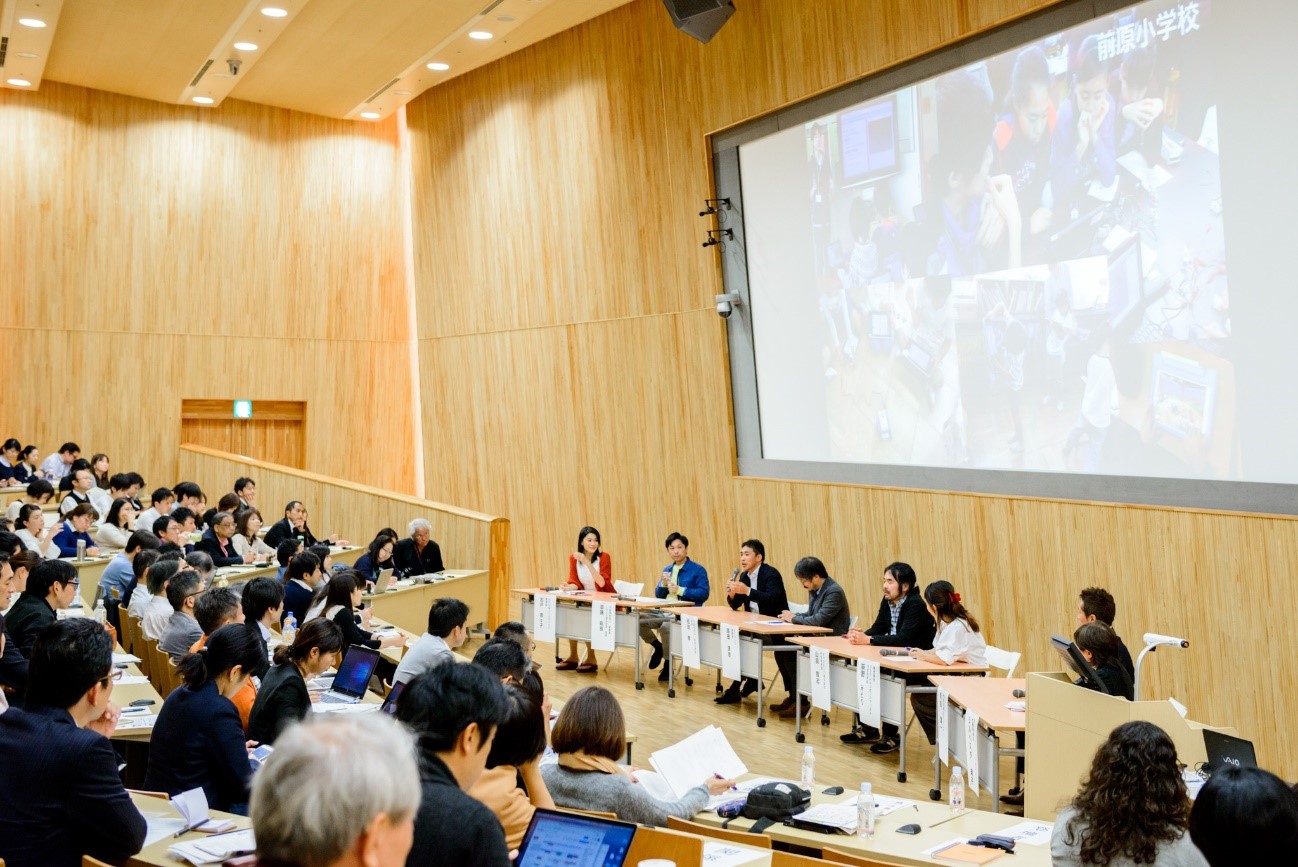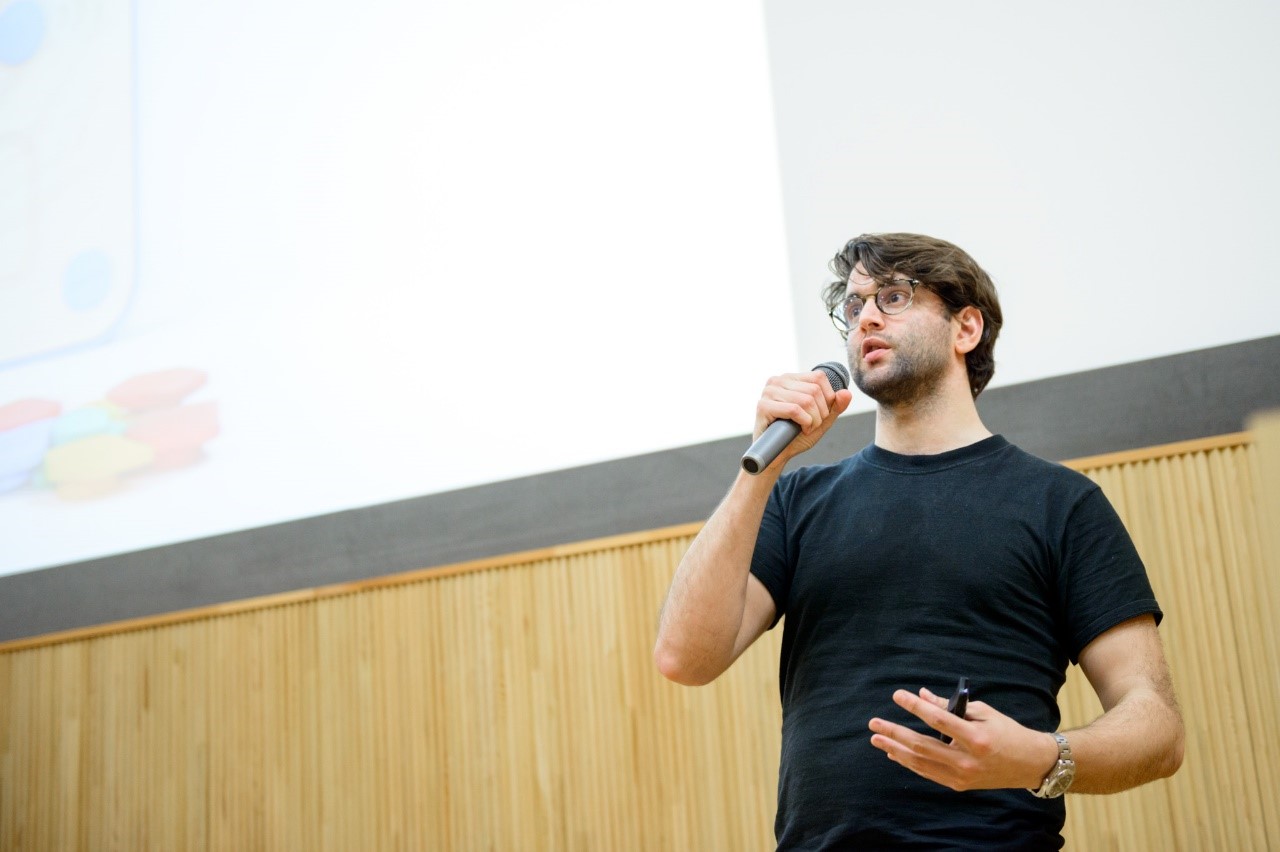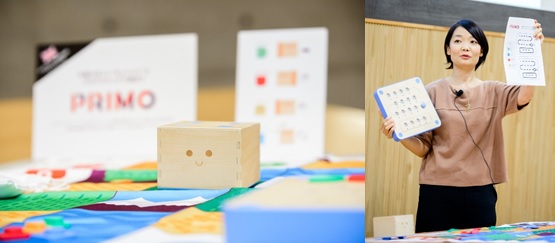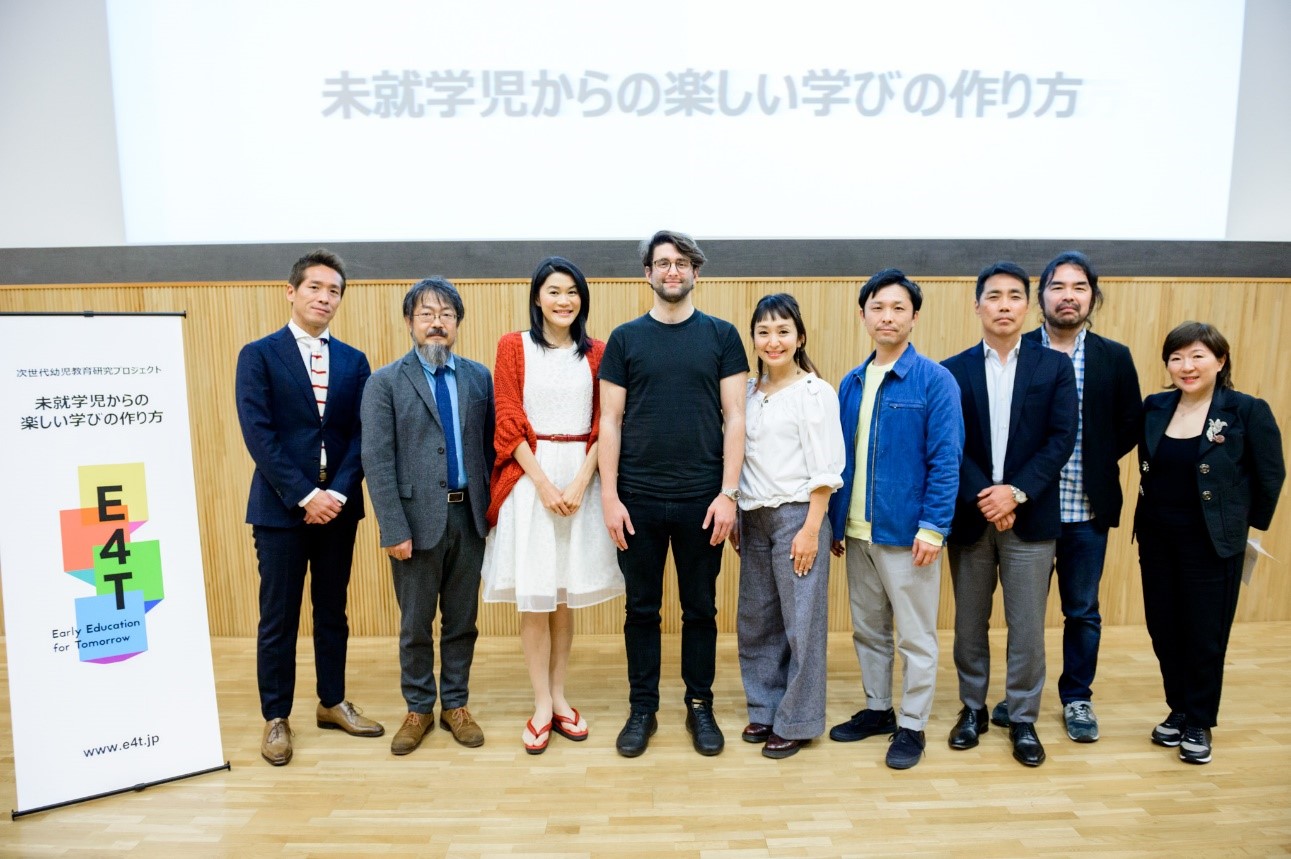昨秋、キャンドルウィックはNPO法人CANVASと共に「次世代幼児教育研究プロジェクト」を立ち上げました。このプロジェクトは、これからを生きる子どもたちの自主性をサポートし、試行錯誤する楽しさを伝え、自ら何かを創り出す力を実感できる学びのあり方を研究することを目的としています。
This fall, Candlewick and CANVAS, an NPO focusing on children and education, launched the Early Education For Tomorrow (E4T) project. E4T is committed in supporting children and their autonomy. The project encourages the fun of taking on challenges, learning through trial and error, and pursuing a learning style that provides children experience of creating something on their own.

去る11月7日には、東京大学の福武ホールで「プログラミング教育の最初の一歩」と題した第1回目のシンポジウムを開催しました。基調講演では、キャンドルウィックが扱う「プリモトイズ キュベット」の開発者であるフィリッポ・ヤコブが講演。これからを生きる子どもたちには、いままでとはまったく違う21世紀のスキルとして、「プログラミング」「データ収集・分析」「異文化間コミュニケーション」「AI/人工知能」に対応できる力が必要になるため、読み書きと同じ段階でプログラミングを学ぶ環境づくりが強く求められている。そして、幼い子どもたちにとっては、プログラミングはあくまで楽しい遊びの中で親しめるものであるべきであると強く訴えました。
The project’s first symposium, “The first step in programming education” was held at the Fukutake Hall of the University of Tokyo on Nov. 7. Filippo Yacob, Founder and Developer of Primo Toys Cubetto, addressed the audience as the key note speaker. “Children living in the 21st century need to take on completely different skills,” said Filippo. “These are ‘programming’, ‘data gathering and analysis’, ‘cross-cultural communication’, and ‘artificial intelligence (AI).’ Children need to learn programming as a new literacy, and the need for such learning environment is getting stronger than ever”. Filippo underlined the fact that programming must be learned in a playful, fun situation.

続くワークショップでは、キュベットのほか、ViscuitとOzobot のデモンストレーションも実施。いずれも子どもがはじめてプログラミングに触れる際に楽しく、簡単に、自由に想像力を働かせて自主的に取り組むことができるように工夫された製品です。来場した保育園、幼稚園、小学校の先生や保護者の方々からは、大人がプログラミング初心者でも子どもと一緒に取り組めそうなツールがあることを知って安心した、という声が多く聞かれました。
Participants to the symposium had a hands-on experience of Cubetto, Viscuit, and Ozobot at the demonstration workshop after the symposium. These products were all developed so to introduce programming in a fun, effortless way, so that the children can freely express their creativity in an autonomous manner. Educators from preschools, kindergartens, and primary schools as well as parents said that they were relieved to find fun tools that can be used by adults who are new to programming, so they can learn the skill together with their children.

そして、メインプログラムとして、教育者、教材開発、保護者、企業と、多角的な立場のパネリストによるパネルディスカッションを行いました。CANVAS理事長の石戸奈々子氏をモデレーターに、創造性を重視した幼児教育を実践しているしぜんの国 保育園園長の齋藤紘良先生、プログラミング教育を通じてアクティブラーニングを実践している小金井市立前原小学校校長の松田孝先生、Viscuitの開発者である原田康徳さん、Ozobotの日本販売パートナーである山脇智志さん、また企業経営をしながら子育てをしている母親代表としてブラウンシュガーファーストの荻野みどりさん、父親・企業人の代表としてフォーセンス・パートナーズの雨宮雄一さん、本プロジェクトの発起人であるキャンドルウィックのシルベスタ典子らが登壇。
The main event, a panel discussion with panelists of various aspects including educators, education material developers, parents, and corporations was held with Ms Nanako Ishido, President of CANVAS as the moderator. Panelists were: Mr Koryo Saito from Shizen no kuni Hoikuen, Mr Takashi Matsuda, Principal of Maehara Primary School in Koganei city, Mr Yasunori Harada, Developer of Viscuit, Mr Satoshi Yamawaki, Ozobot sales partner in Japan, Ms Midori Ogino from Brown Sugar First, representing mothers/entrepreneurs, Mr Yuichi Amemiya, Fosence Partners, Inc., and Noriko Silvester from Candlewick, who facilitated this project.

プログラミングはコンピューターの世界に限定されたものではなく、常に変化を求められる時代を生きる子どもたちには、自ら学び、自ら創り出していく力が必要であることや、自分で考える力や人に伝える力、うまくいかなったときに何度でも繰り返してチャレンジする気持ちを育くむなど、未来を生き抜く力を身につける学びにつながるものとしてのプログラミング教育の可能性について、熱く議論がされました。
Computational thinking does not only exist on screens. It is a mindset that contemporary children need to use to steer their way through the ever-changing environment, and help them learn and express their creativity. Computational thinking also supports children’s capability to think, communicate, and face challenges through trial and error. Discussions was led with a bold note of confidence in the potential in coding education, which will provide essential learning for children to grow their abilities to thrive in the future.
次世代幼児教育研究プロジェクトは、今後も「論理的思考」「創造性」「コミュニケーション」「問題解決力」の4つの要素を主軸に、主に未就学児から小学校低学年の子どもたちを対象とした、理想の学びを提案して参ります。今後の活動についてはFacebookで随時更新しています。
E4T will propose innovative learning ideas mainly for preschoolers and children in primary stage of education. E4T stands on four pillars, namely “logical thinking”, “creativity”, “communication”, and “problem solving” capabilities. Please check the E4T Facebook page for future updates.
★次世代幼児教育研究プロジェクト公式HP
Early Education For Tomorrow (E4T) project website: https://www.e4t.jp/
★公式Facebook
E4T Official Facebook page: https://www.facebook.com/E4Tproject/